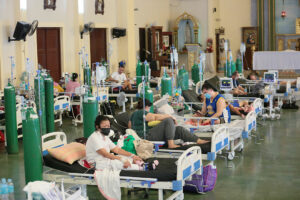THE Asian Development Bank (ADB) said the government needs to consider reinsurance to mitigate the government’s exposure to healthcare costs during epidemics and pandemics.
“Reinsurance would allow for either a category of risk (such as pandemic risk) or a proportion of claim risk to be transferred out of PhilHealth’s portfolio,” the ADB said in a paper released on Dec. 24.
It also added that reinsurance options are commercially available to limit pandemic and epidemic risk.
The ADB said among the common options for pandemics and epidemics is stop-loss reinsurance, which provides coverage when claims exceed a certain threshold, protecting PhilHealth from sudden increases in claims during such events.
“In this model, PhilHealth and the reinsurer would share proportionally in all premiums and losses from a pandemic or epidemic event,” the ADB said.
It added that reinsurance leads to pandemic risk modeling, risk-based pricing, capital relief, and more.
The ADB highlighted several advantages of reinsurance, including access to pandemic risk models, risk-based pricing, and capital relief.
At the same time, it also emphasized the need for PhilHealth to have clear coverage policies for pandemics and epidemics to manage its premiums and reserves effectively.
PhilHealth said it has P281 billion in reserves set aside to meet benefit payments for two years and P150 billion in surplus as of October.
It also had an investment portfolio of P489 billion as of November.
The ADB said while PhilHealth was able to provide policyholder benefits for coronavirus disease 2019 (COVID-19) as the result of considerable reserves, this may not always be the case and is an “unreliable method of approaching disaster risk financing.”
Social insurers often exclude coverage for pandemic-related prevention, treatment, and immunization due to insufficient data on their severity and frequency, it noted.
However, during the COVID-19 pandemic, PhilHealth was instructed to extend benefits to close the protection gap.
Last week, the bicameral conference committee stripped PhilHealth of its subsidy for the proposed budget for 2025.
In response, PhilHealth President and Chief Executive Officer Emmanuel R. Ledesma, Jr. assured that users will still have “uninterrupted access” to benefits and no reduction despite zero subsidies for next year. — Aubrey Rose A. Inosante
